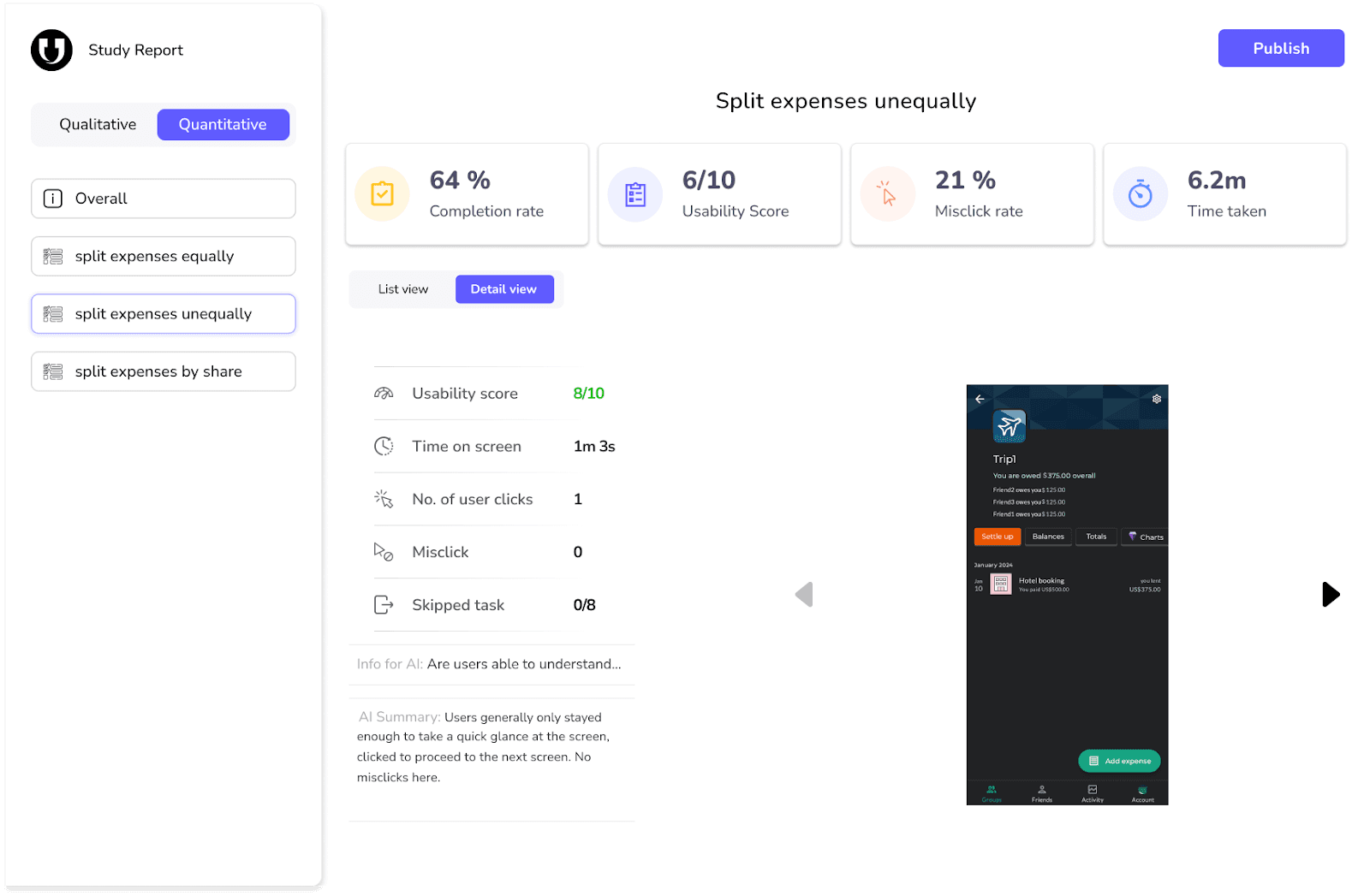
Shrey Khokhra
25 Dec 2024
5 min read
Best Practices for Ethical Participant Management in UX Research

Introduction:
Ethical participant management is at the heart of every successful UX research project. Maintaining transparency and fairness throughout the research process builds trust with your participants and ensures the reliability of your results. This blog will explore the core ethical considerations for managing participants in UX research—focusing on informed consent, compensation, privacy, and security. By implementing these best practices, UX professionals can ensure their research is both ethically sound and effective, leading to more trustworthy findings and better user experiences.
Key Takeaways:
Informed consent ensures participants fully understand their involvement.
Fair compensation shows respect for participant time and effort.
Participant privacy is paramount for maintaining trust.
Compliance with ethical guidelines is essential for research integrity.
Why Ethical Participant Management Matters

Effective participant management is not only critical for ensuring valid research outcomes but also for upholding the trust and rights of the people involved in the study. Here’s why ethical participant management is essential:
Building Trust with Participants: Ethical research practices foster trust, ensuring that participants feel safe and valued.
Protecting Participant Rights: Respecting participant autonomy, including their right to withdraw, ensures a respectful and lawful research process.
Maintaining Research Integrity: Ethical participant management leads to more reliable and unbiased findings, strengthening the credibility of your research.
Legal and Professional Compliance: Adhering to ethical guidelines, such as those set by Institutional Review Boards (IRBs), helps ensure your research meets legal and professional standards.
Informed Consent: The Foundation of Ethical Research

Informed consent is the bedrock of ethical research practices. It ensures that participants are fully aware of the research procedures, potential risks, and benefits. Here are the key elements of an effective informed consent process:
Clear and Concise Language: Avoid jargon and ensure that the consent forms are easily understandable by your participants.
Full Disclosure: Explain the purpose, procedures, potential risks, and benefits of the research. Also, clarify how the data will be used and stored.
Right to Withdraw: Assure participants that they can leave the study at any time, without any repercussions.
Data Confidentiality: Inform participants about how their data will be anonymized and protected.
At Userology, we empower UX researchers by providing access to ethical participant recruitment channels like Respondent.io, Prolific, and UserTesting, ensuring that all consent processes are thoroughly documented and participants are well-informed.
Fair Compensation: Respecting Participant Contributions

Participants dedicate their time and effort to contribute valuable insights to your research. Fair and appropriate compensation shows respect for their contributions and encourages continued participation. Ethical compensation practices include:
Monetary Compensation: Providing fair payment for the time spent on research activities.
Non-Monetary Compensation: Offering incentives such as gift cards, charitable donations, or discounts.
Transparency: Clearly outline the compensation in the consent form and ensure participants understand when and how they will be compensated.
Userology supports transparent participant compensation practices by integrating payment and incentive options directly into our recruitment processes. By using our platform, researchers can ensure participants are rewarded fairly and ethically for their time and effort.
Participant Privacy and Confidentiality: Safeguarding Sensitive Data

One of the most important ethical considerations in UX research is maintaining participant privacy. Researchers must ensure that any data collected is securely stored, anonymized, and protected from unauthorized access. Here are key privacy practices:
Data Anonymization: Always anonymize personal data to ensure participants cannot be identified by their responses.
Secure Data Storage: Use secure systems for storing participant data, employing encryption and other security measures to prevent unauthorized access.
Confidentiality Agreements: Participants should be assured that their data will remain confidential, with no personal information shared without their consent.
At Userology, we prioritize data protection by offering secure, encrypted data storage solutions. Our platform ensures that all participant data is stored with the highest level of confidentiality, giving both researchers and participants peace of mind.
Other Ethical Considerations
While informed consent, compensation, and privacy are foundational, ethical UX research also involves additional considerations:
Vulnerable Populations: Special care must be taken when involving vulnerable groups (e.g., children, elderly, or individuals with disabilities) in research. Ethical guidelines dictate that additional protections are put in place to safeguard these participants.
Cultural Sensitivity: Research should be inclusive and culturally sensitive, ensuring that no participants are marginalized or discriminated against due to their background or identity.
Minimizing Potential Harm: All research should aim to minimize any potential harm to participants—whether physical, emotional, or psychological.
Userology supports researchers by providing tools that ensure compliance with ethical standards when recruiting from diverse populations and managing sensitive data.
Resources and Guidelines:
For a comprehensive understanding of ethical standards in UX research, refer to these key resources:
Institutional Review Boards (IRBs): These bodies review research protocols to ensure ethical standards are met. Engaging with an IRB helps maintain compliance with both institutional and legal regulations.
Industry Best Practices: Refer to established industry guidelines for best practices in participant management and ethical UX research.
At Userology, we adhere to these best practices by offering a platform that integrates participant screening, recruitment, and management in compliance with the highest ethical standards.
How Userology Supports Ethical UX Research Practices

At Userology, we are dedicated to helping researchers implement ethical participant management strategies. Our platform offers seamless integration with reputable recruitment channels, such as Prolific, UserTesting, and Respondent.io, to ensure ethical recruitment and compensation processes. Additionally, we provide tools for managing participant communication, ensuring transparency and respect throughout the research lifecycle.
By using Userology, UX researchers can effortlessly manage participant recruitment, screening, compensation, and privacy, while adhering to ethical guidelines. We help you create a positive participant experience that builds trust and promotes the integrity of your research.
Conclusion:
Ethical participant management is an essential component of successful and responsible UX research. By ensuring informed consent, fair compensation, and robust privacy protection, researchers can create a trustworthy environment for participants and generate reliable, actionable insights. Userology is proud to support these best practices, offering tools and resources that help researchers manage participants ethically and effectively.